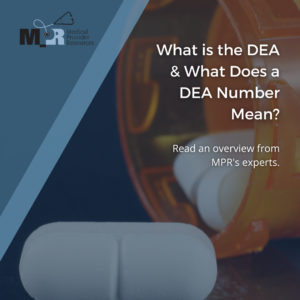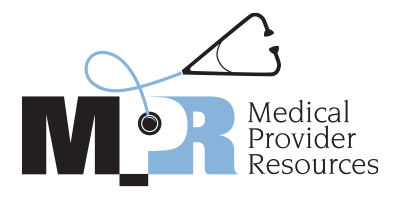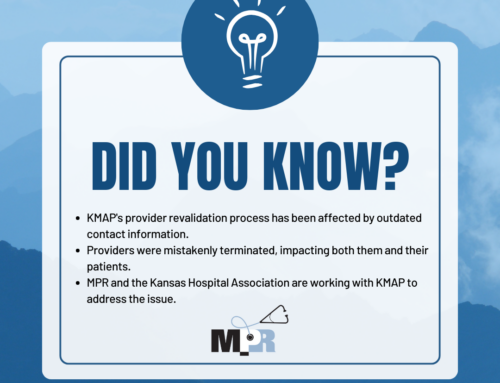The DEA (Drug Enforcement Administration) Helps Enforce Controlled Substances Laws & Regulations
 What is the DEA? What is a DEA number and what does it mean? Our medical credentialing and insurance enrollment experts from Medical Provider Resources provide an overview of helpful information:
What is the DEA? What is a DEA number and what does it mean? Our medical credentialing and insurance enrollment experts from Medical Provider Resources provide an overview of helpful information:
What is the DEA (Drug Enforcement Administration)?
The DEA enforces the controlled substances laws and regulations of the United States. It maintains the Controlled Substance Act Database as part of a continuing effort to regulate and monitor controlled substance prescriptions thoroughly
What is a DEA number?
A DEA number is specific to the healthcare provider who registers and intends to prescribe legally controlled substances, including opioids, morphine, and steroids. The purpose of the number is to track provider prescriptions and monitor for potential fraud and abuse. It allows the Drug Enforcement Administration to analyze who is prescribing controlled substances and the quantities prescribed.
What are examples of controlled prescription drugs?
- Codeine
- Hydrocodone
- Morphine
- Oxycodone
- Valium
- Xanax
What does a DEA number mean?
DEA numbers are created so pharmacists can identify a falsified prescription.
MPR provides insurance enrollment services and medical credentialing including provider credentialing services, medical insurance credentialing, physician insurance credentialing, and physician background checks to help your company focus on what matters most – patient care. Please call 316-683-0178 or contact us online for a free consultation. We’re happy to help!



